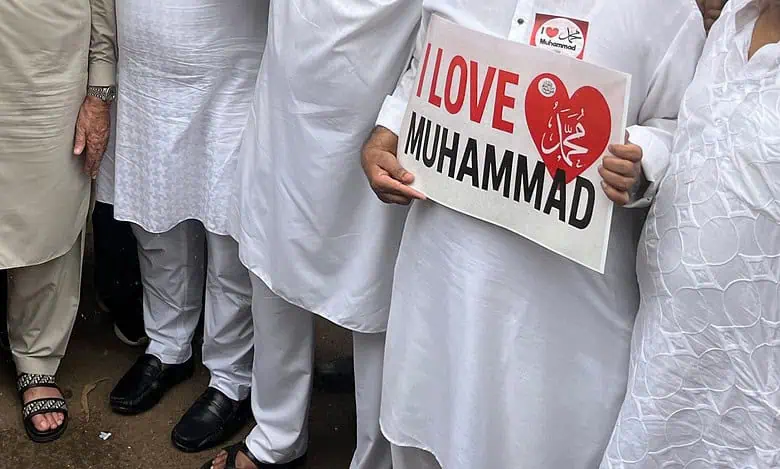Key Takeaways
- Uttar Pradesh filed 16 FIRs with over 1,000 accused.
- 1,324 Muslims booked in 21 FIRs across India.
- 38 arrests made in multiple states.
NEW DELHI — A report from the Association for Protection of Civil Rights (APCR) has documented the booking of 1,324 Muslims and the arrest of 38 individuals following ‘I Love Muhammad’ rallies across India.
The legal actions began after police interventions in Kanpur’s Barawafat procession targeting banners displaying the slogan. The report states that 21 first information reports (FIRs) have been filed nationally, with Uttar Pradesh accounting for 16 of these FIRs and more than 1,000 accused.
In Uttar Pradesh, Unnao district registered eight cases involving 85 people and five arrests. Kaushambi district saw 24 accused and three arrests, while Baghpat listed 150 accused and two arrests.
Other states include Uttarakhand, where 401 people were booked and seven arrested, Gujarat with 88 accused and 17 arrests, Baroda with one case and one arrest, and Maharashtra’s Byculla area reporting one person booked and arrested. The data shows a concentrated enforcement effort in northern India.
Nadeem Khan, national secretary of APCR, told Maktoob Media that the crackdown violates fundamental rights. He stated that expressing love for the Prophet through peaceful rallies should not lead to criminal charges.
The rallies spread after the Kanpur incident, with participants carrying banners and chanting slogans as a form of religious expression. Authorities cited public order concerns, but critics argue the response disproportionately targets the Muslim community.
The APCR report compiles data from official records and field investigations, highlighting the scale of legal actions. Each FIR can encompass multiple accused, leading to the high number of bookings.
The charges are filed under various sections of the Indian Penal Code, though specific provisions are not detailed in the summary. Community leaders have raised alarms over potential biases in law enforcement, calling for a review of the cases.
This event follows a pattern of similar crackdowns on religious expressions in India. The report notes that legal proceedings could extend for months, affecting the livelihoods of those accused. APCR plans to submit its findings to human rights organizations and seek judicial interventions. The situation remains dynamic, with ongoing advocacy efforts aimed at protecting constitutional rights.
The ‘I Love Muhammad’ rallies represent a peaceful assertion of religious identity, and the backlash has sparked discussions on freedom of expression. The APCR emphasizes the need for dialogue between communities and authorities to prevent escalation.
The outcomes of these cases may influence how religious assemblies are treated in the future, setting important precedents for civil liberties in the country.




 WhatsApp Channel
WhatsApp Channel
 Instagram
Instagram
 Facebook
Facebook
 X (Twitter)
X (Twitter)